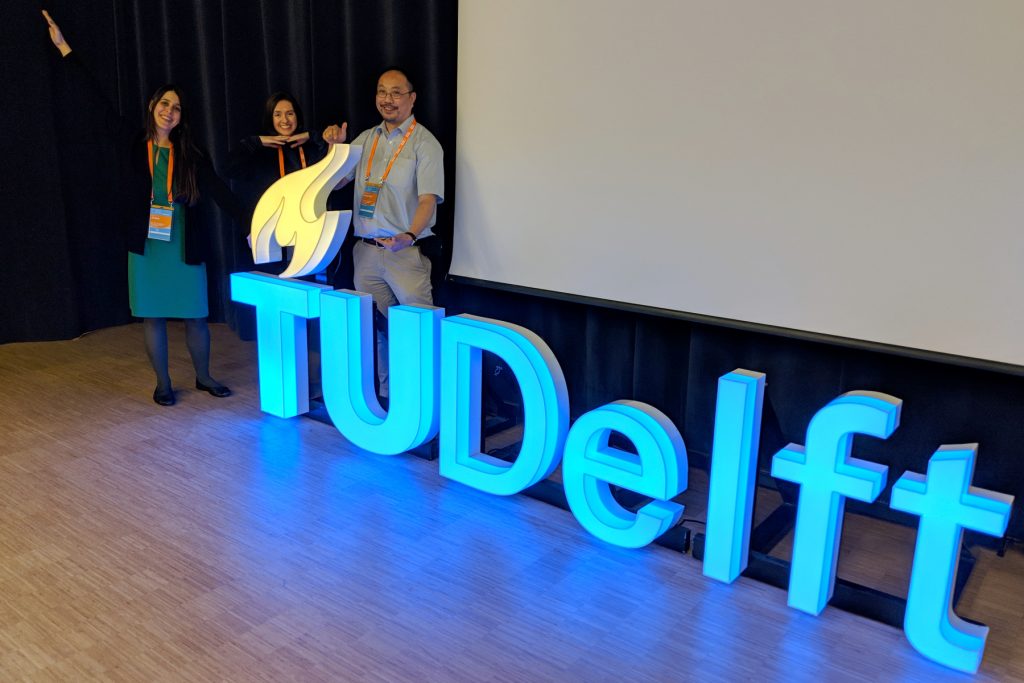OE Global
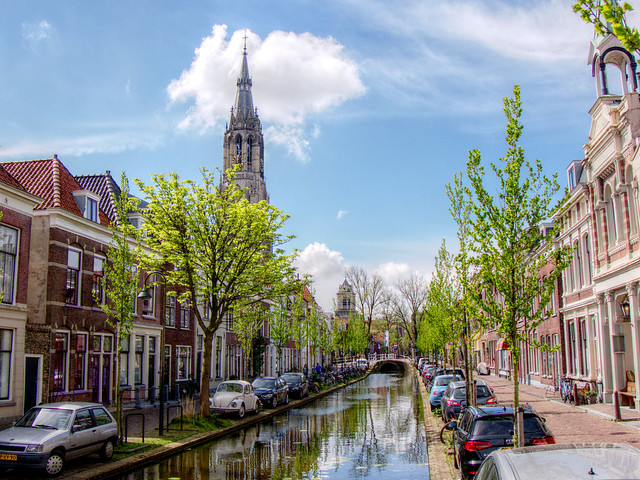
Tower of the Nieuwe Kerk on Canal. (CC-BY-NC-SA Jeremy Seto)
The Open Education Global 2018 conference was held in Delft, Netherlands April 24-26 at the Technical University of Delft (TU Delft). A Multidisciplinary group (Amanda Almond – Social Sciences/Psychology, Jill Belli – English, Cailean Cooney – Library & Jeremy Seto – Biology) from City Tech presented on the Open Educational Resources at the College using the OpenLab as the platform for dissemination.
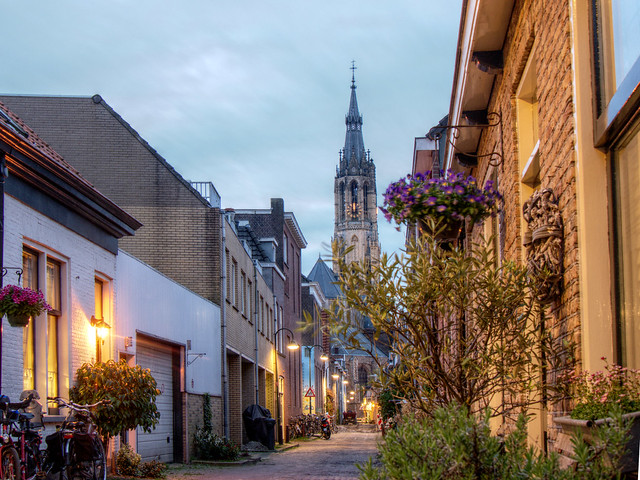
Civil twilight in Delft. (CC-BY-NC-SA Jeremy Seto)

Markt Square as a globe for OE Global (CC-BY-NC-SA Jeremy Seto)
Reflections from the conference
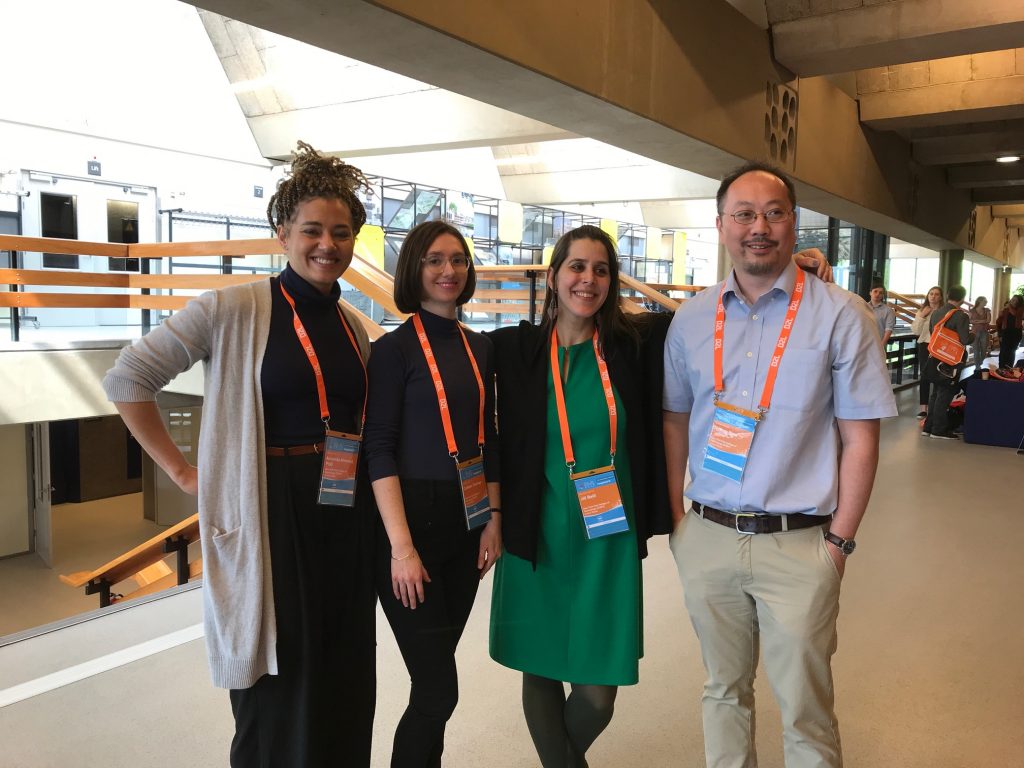
Amanda Almond, Cailean Cooney, Jill Belli, Jeremy Seto following presentation “Building a Culture of Open Pedagogy from the Platform Up” (Credit: Ann Fiddler)
The presenters were asked to reflect on their experiences at the meeting.
What were you expecting of the make-up of the audience and how did your portion of the presentation reflect this? Where these expectations met?
Cailean: I was impressed with the large audience and there seemed to be a good representation of educational technologists, instructors, and librarians. I think each of our contributions offered complementary examples of intentional pedagogy built out of and for the City Tech community. I think for the audience to see the evidence of that at a programmatic, platform, and course level was really unique and invigorating.
Amanda: My expectations of the audience were met: most were educators/instructors/professors. (although there was no way to be certain). I suspect this was the case because my portion of the presentation was well received. Audience members enjoyed the detailed examples of using OERs to achieve interdisciplinary learning objectives as well as outcomes specific to health and disease prevention. My expectations were exceeded. I thought that my in-depth case study about my course would be perceived as an add-on to the OER training and OpenLab portion of our presentation; however, people responded very positively to how OERs enhances student participation, learning and expression, and self-efficacy.
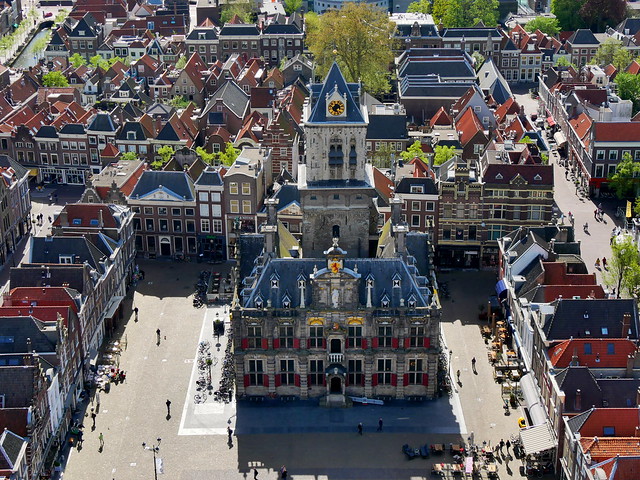
City Hall and the main square of Delft from the top of the New Church. (CC-BY-NC-SA Jeremy Seto)
Jeremy: I wasn’t sure what to expect based on the diversity of titles and topics of other presentations. In the end, I felt there were a lot of Librarians in the audience and not as many instructors. I think the audience liked the different uses of the OpenLab for discipline specific dissemination of course material. I focused on course coordination and standardization of my material as outlined by the National Science Foundation, so I think I provided a perspective to the audience they weren’t necessarily anticipating. Overall, I think the diversity of our panel presentation represented our institution in a good light.
What events, talks or presentations had an impact on you during the conference about the direction of the OER initiative or enhancement of features on the OpenLab?
Amanda: I was most moved by the keynote speaker on the first day. Following the Minister of Education’s quote “we are to ensure that knowledge remains free for all, and not limited to just those with the buying power” was a representative from Kiron. This is a program/platform that serves refugees from war in 5 countries. Their online program affords 2-year degrees, with continuations at other universities, in degrees that are highest in demand (pertaining to the global market), for people displaced by war. This is entirely free and offers ample support, both educationally and socially, towards individual success. As this program grows, folks remain reflexive and keep the benefits of the students at the forefront of new additions and iterations. Combining mentorship and community in addition to advising and online courses with free materials; the Kiron program is aspirational and remains in need of institutional support from colleges around the globe. For me, this put into context the ethical and moral implications of OER initiative and the rapidly-changing world we live in.
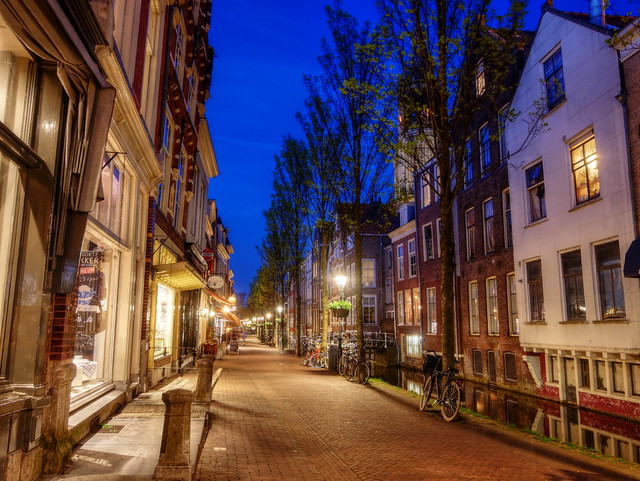
The streets of Delft (CC-BY-NC-SA Jeremy Seto)
Jeremy: I was really moved by the Keynote (Kiron NGO) on the first day. As a free culture proponent, I’ve always looked at the Open Education Resources initiative as being centered behind social justice. Our student body at City Tech is so non-traditional, that access to education has taken a new meaning when I observed students coming to class without materials because they didn’t have their financial aid money yet. I’ve also viewed it the other way in which we can put the responsibility on students to be prepared by removing this financial obstacle. The discussion regarding the UNESCO draft recommendation on OER was also enlightening. This was a great example of the international movement and support behind this social justice issue.

UNESCO logo for Open Educational Resources. (CC-BY Jonathasmello)
How does CUNY’s entry as a sustaining member of the Open Education Consortium impact the goals of Open Educational Resources and Open Pedagogy at City Tech?
Amanda:It showcases the work being done here. It connects faculty to others with similar orientations to OER and pedagogies for continued support and identification of new materials. It helps to lessen the learning curve for those faculty whose disciplines are not inherently “tech”. It provides perspective to where City Tech and CUNY fit into the global needs and goals of education for populations negatively impacted current knowledge dissemination driven by capitalist mores; rather than ones of social justice, restoration of people and affected communities, and ensuring success for our students.
Jeremy: The CUNY contingent also met with the new director of the Open Education Consortium. As we discussed our role as a University within this organization, I spoke about the coalescence of the various dialects of “open” that were being discussed during the conference. From the numerous talks, I began to see the limitations of what everyone was doing because Open Source Software, Open Hardware, Open Education, Open Data etc. would have the same desired outcome but unable to integrate fully with each other. As someone in a data driven field, the various talks illustrated to me how these dialects of Open were still partially partitioned from each other and the next step in the educational process would be to have better cross-talk. This is really important considering the new proposed majors that are coming into play at City Tech.
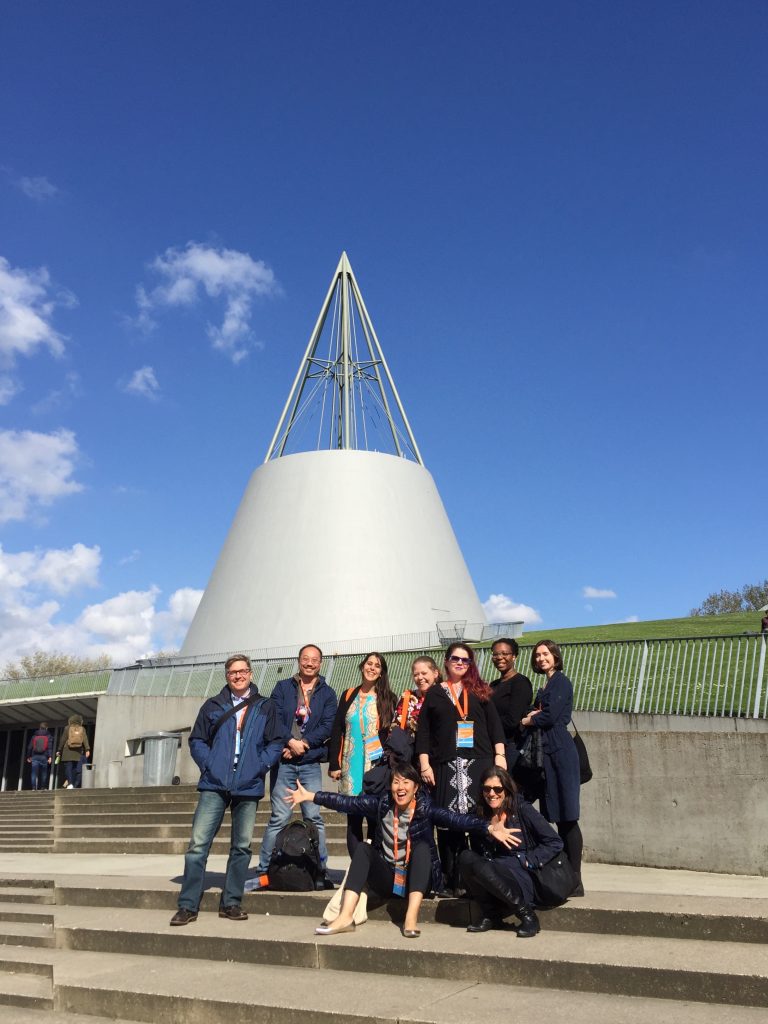
CUNY outside of the the TU Delft Library. Standing: Greg Gosselin (Interim University Dean of Libraries and Information Systems), Jeremy Seto (NYCCT – Biology), Jill Belli (NYCCT – English), Stacy Katz (Lehman – Library), Shawna Brandle (KBCC – History-Philosophy & Political Science), Nicole Williams (BCC – Library), Cailean Cooney (NYCCT – Library). Front: Mari Watanabe-Rose (Director of Undergraduate Education Initiatives and Research), Ann Fiddler (CUNY – Open Education Librarian)
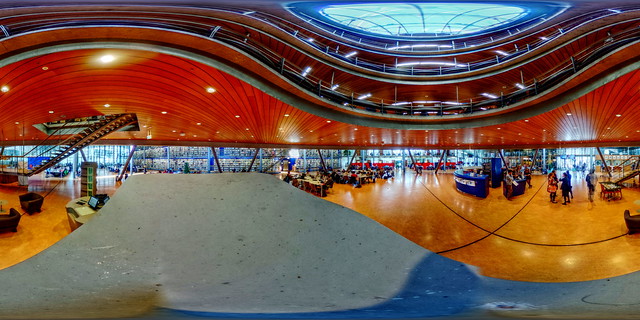
Inside the TU Delft Library. (CC-BY-NC-SA Jeremy Seto)
The Open Education consortium
As a new sustaining member of the Open Education Consortium, CUNY presenters met with the the new Director Paul Stacey and Una Daly (CCCOER Director)to discuss the University’s role in the organization.
OER.info Interview
An interview with Jill, Cailean and Jeremy during the conference can be found on this German language website https://open-educational-resources.de/das-city-tech-openlab-eine-offene-gemeinsame-plattform-fuer-die-campusse-der-city-university-new-york/
Additional Links

